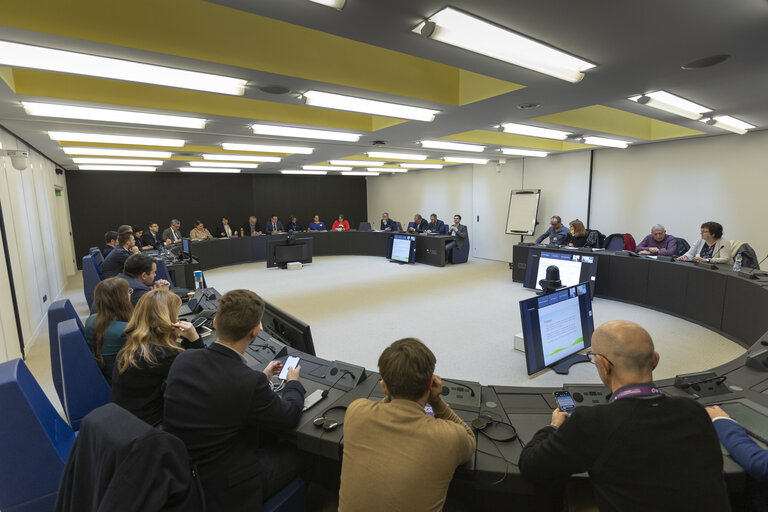Josu Amezaga presented the study “The diversity and accessibility of European languages on European streaming platforms” at the European Parliament’s February plenary session on minority languages [IG9-23].
The work was carried out on behalf of MEP Diana Ribak of the Greens/EAA group of the European Parliament, under the direction of Katixa Agirre, a member of the NOR Research Group. Together with him, they have carried out the report Josu Amezaga, Marijo Deogracias, Naroa Burreso and Ane Martínez de NOR, as well as Blanca Arias of the Pompeu Fabra University, Antia López of the University of Santiago de Compostela, and Naiara Larrakoetxea of the Basque Federation of People’s Associations.
The study presented in Strasbourg is a first approach to the issue of language and accessibility on the offer of the largest streaming platforms in Europe. This first approach highlights the absolute superiority of English in the audio channels, subtitles and audio descriptions of platforms and the low presence of minority European languages; only 5 minority languages have a place in these large platforms (Catalan, Galician, Basque, Welsh and Luxembourgish).
The report raises a number of questions:
· In audiovisual production, the hegemony of the Anglo-Saxon industry and English in the field of language is repeated. English is the first language in the 17 countries studied, on the three platforms (Netflix, Disney+ and Prime Video) and on all media (audio, subtitles and audio-description). In some cases, the offer in English is well above the main language of the country.
· Just as a monitoring of the origin of audiovisual production is disseminated in Europe (which allows the implementation of policies at European level), languages and accessibility resources of these productions should also be monitored to implement policies to promote cultural diversity.
· The low presence of minority languages on global platforms is not just a market problem. The fact that the five who have arrived in this space have strong political structures behind them and, in most cases, strong grass-roots movements is not random either. Moreover, taking as an example the Basque case, the smaller platforms (Primeran and Filmin) that extend have a much greater offer in Basque than the giant platforms; if the smaller ones can do so, the larger ones should have more facilities.
· The English hegemony also affects accessibility. In the absence of an audiovisual offer of signs, accessibility resources depend on oral languages. And thanks to the hegemony of English in all media, it leaves people who don’t master English without resources.
+Info: https://www.dianariba.com/2024/02/01/quina-es-la-situacio-del-catala-a-les-grans-plataformes-streaming-tho-expliquem/

